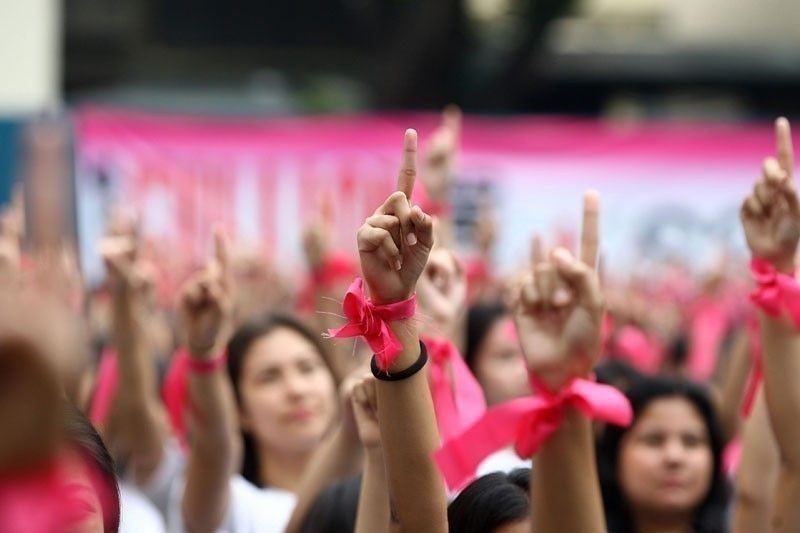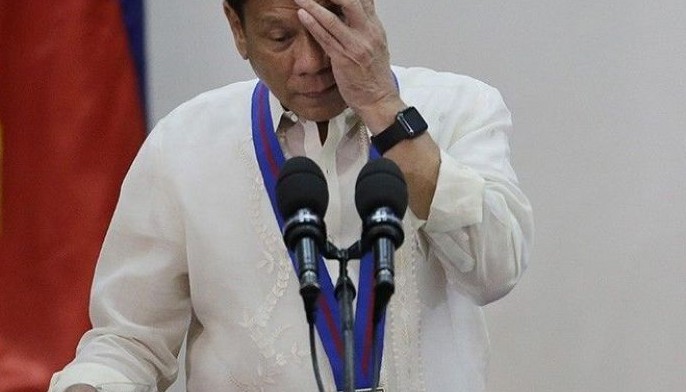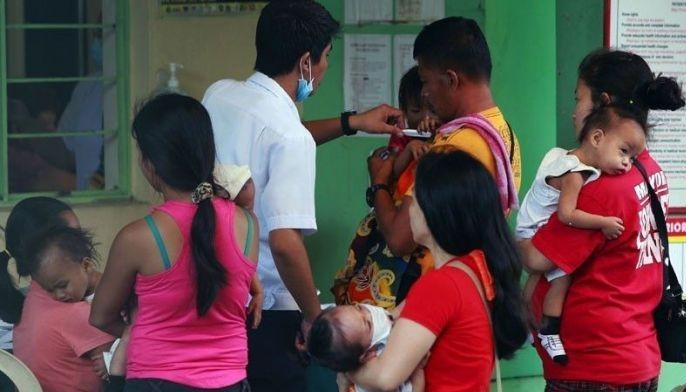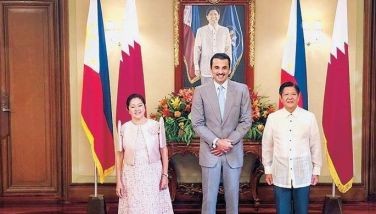'Misogyny keeping more women out of government'

MANILA, Philippines — Although there have been strides in the corporate world, women are still underrepresented in the Philippine government, according to recent studies on gender diversity.
According to results of a study released at the Gender Diversity Benchmark for Asia forum at the Thomson Reuters office in Taguig this week, women make up 56% of the total workforce in the Philippines. In terms of representation in senior level or leadership positions, women in the Philippines also ranked first in Asia while still being significantly unrepresented compared to men at 33%.
The World Economic Forum, in its Global Gender Gap report released in December 2019 noted that the political empowerment gap in the Philippines had "widened considerably over the past two years, albeit from a relatively high base...causing the country to drop from 13th to 29th position."
WEF said that "[the] downgrade is almost entirely attributable to lower female representation in the cabinet, which declined from 25% to 10% between 2017 and 2019." On the current Duterte Cabinet, only Education Secretary Leonor Briones and Tourism Secretary Bernadette Romulo-Puyat are women.
'Misogyny a factor'
A perceived lack of women in government has not been helped by President Rodrigo Duterte's misogyny, a journalism professor said on the sidelines of the GDBA forum.
In an ambush interview with reporters, Ma. Diosa Labiste, assistant professor at the University of the Philippines Department of Journalism, said: "Sa Cabinet ni Duterte, increasingly nagiging male dominated na. Some members of the Cabinet na babae are no longer there."
Labiste, who has a doctorate in Sociology from the University of Birmingham, said this was not surprising considering how the president, whom she referred to as a "source of such misogynist comments" talks about women.
"I think it’s expected because the way he treats women and the way he would put across comments about them, mas mahirap na mag-demand ka (it is more difficult to make demands). What would you expect from a president like that?"
The president's spokespersons and supporters, and the president himself, have said that his off-color remarks about women are just part of his style and an expression of freedom of speech.
READ: Duterte claims female critics depriving him of his right to freedom of expression
He said in March 2019, after being called out over his remarks about women, that he does not mean to malign anyone with his statements. "I love women. You see, I have two wives. That means, I really like women," the president also said.
Women identified with the political opposition have also been subject to attacks that question their modesty as well as their intelligence, she said.
Among those women, she said, are Vice President Leni Robredo and detained opposition Sen. Leila de Lima, whom she called "targets of cyber-hate."
Labiste, who was among the UP journalism faculty that spearheaded election fact-checking initiative Tsek.ph, said: "We’re seeing the rise of cyber-hate and gender trolling. These are the ways women are attacked."
"If we have a government encouraging misogynist comments and demonizing critics, we should fight back," she said. "If you keep quiet, they’ll think it’s okay."
Most women in government are in bureacracy
Labiste added that the gender gap can also be seen in the legislature, where, she said "if you look at representation of women in Congress, I think there are still more men."
The WEF Global Gender Gap report noted that "representation in the parliament was also slightly down and stood at 28% at the beginning of 2019."
Labiste added that "many of the women who are there are there because they’re part of political dynasties. They haven’t really gotten there because of their socio-political capacity but more because of their social and political capital."
"There should be more women who should be elected to public office on the basis of their capacity," she said.
She clarified, however, thet "we’re not saying na walang women sa bureaucracy," saying many of them are in "the middle range" of government service.
"We have [members of] government who [are] very strong on gender equality," she noted, adding however, that "they should be able to translate it into policy even in their workplaces."
'Bright spot but not perfect'
The GDBA study found that women make up 56% of the total workforce in the Philippines, and 33% in terms of representation in senior level or leadership positions in the private sector.
Researchers said that the Philippines was a bright spot among its counterparts in Asia but was still not perfect. Despite the glowing results of the Philippines, the country's inclusion of women is clearly not without its lapses.
Asked why the Philippines could have ranked first across the board, Labiste credited this to much of the growth of the women’s movement from the 60s to the 80s.
She said these "paved the way for the country to have more laws that will promote equality and support for universal access to education [gave] women access to education on many levels."
"Years of having women and feminist groups raising issues and consciousness in society, these are the gains we’re seeing now," she said.
"Having women assert themselves in workplaces through associations and labor unions, I think this helped close the gap. We have to credit the part of our history where women demanded these laws and equal pay and fair and better representation."
'Men, too, should take part'
In a statement on Sunday, Sen. Risa Hontiveros said that men, too, should take part in the struggle for women's rights, citing the statistic that, in the Philippines, one woman is raped every hour while one in four women have experienced spousal violence.
Acknowledging the gap in gender empowerment, Hontiveros said: "Male privilege should be used one last time to provide a platform for issues surrounding women, then dismantled."
“Men need to unlearn this entitlement to women’s bodies, clothing and attention," the senator said, adding that that attitude leads to "gender-based abuses directed at women."
READ: A look at acts punishable by 'Bawal Bastos' law
“Sexual harassment, domestic violence, and rape start with the thought of ownership over women," Hontiveros, chairperson of the Senate Committee on Women, Children, Family Relations, and Gender Equality said.
She said that men must acknowledge that they are prone to traits that could lead to disresepcting women, and that "they also have the power to stop themselves from exercising these traits."
"Kaya ngayong araw, at sa mga araw na susunod pa, men must actively participate in women’s call for justice and equality. Sama sama tayo dito," Hontiveros said in her statement for International Women's Day. — Franco Luna
- Latest
- Trending

































